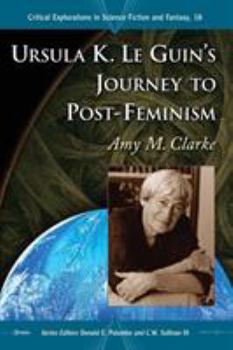Ursula K. Le Guin's Journey to Post-Feminism
(Book #18 in the Critical Explorations in Science Fiction and Fantasy Series)
The first book-length treatment of Le Guin's feminism, this text offers a career-spanning look at her engagement with modern gender theory and practice. During the 1970s, Le Guin experienced a paradigm shift to feminism, a change which had profound effects on her work. This critical examination explores the masculinist nature of her early writing and how her work changed both thematically and aesthetically as a result of her newfound feminism. Of particular interest is her later phase, wherein Le Guin transitions to a more inclusive post-feminism, privileging unity and balance over separatism. A vital addition to Le Guin criticism.
Format:Paperback
Language:English
ISBN:0786442778
ISBN13:9780786442775
Release Date:March 2010
Publisher:McFarland & Company
Length:219 Pages
Weight:0.85 lbs.
Dimensions:0.6" x 5.9" x 8.8"
Age Range:18 years and up
Grade Range:Postsecondary and higher
Customer Reviews
0 rating





